Porsche, Lincoln and Buick Top J.D. Power Vehicle Dependability Study

J.D. Power has just released its Vehicle Dependability (VDS) Study for 2010, giving the top spot to Porsche, followed closely by Lincoln and Buick. Only one of the three, Buick, was on the podium last year, but has dropped from first to third. Also of significance is the continued slide by Lexus, which finds itself in fourth place this year. Last year Lexus placed third, marking the first time in 14 years the luxury Japanese automaker didn’t take first. That’s nothing compared to Jaguar, however, which dropped a total of 21 spots from second last year to 22nd for 2010.
Other big movers include Ford, moving up six spots to 8th overall.
Included in this year’s results, J.D. Power thought to mention several automakers that placed highly, but which aren’t generally considered by consumers due to poor brand perception about reliability. These include Cadillac, Ford, Hyundai, Lincoln and Mercury. No doubt these brands will all see improved brand perception and sales in the years to come.
Despite its recall woes this year, Toyota continues to perform highly, placing sixth overall and taking home the most vehicle segment awards, for models such as the Highlander, Prius, Sequoia and Tundra. Honda, in seventh place overall, took home three for the CR-V, Fit and Ridgeline.
Overall, J.D. Power found that vehicle dependability has improved by 7 percent.
The 2010 Vehicle Dependability Study was based on responses by more than 52,000 vehicle owners with three-year-old (2007) models. Scores are based on the number of problems per 10p vehicles, with lower scores indicating a higher quality.
GALLERY: J.D. Power 2010 Vehicle Dependability Study
Official release after the jump:
J.D. Power and Associates Reports:
Despite Overall Industry Improvement in Long-Term Dependability, Some Vehicle Brands
Don’t Receive the Credit They’re Due
Japanese Models Capture Nine Segment Awards, While Domestic Models Garner Seven and European Models Earn Three
WESTLAKE VILLAGE, Calif.: 18 March 2010 – Twenty-five of 36 vehicle brands have improved in long-term dependability in 2010 compared with their performance in 2009, continuing a steady trend of industry-wide improvement. However, for some of these brands, consumer perceptions have not kept pace with their actual performance, according to the J.D. Power and Associates 2010 U.S. Vehicle Dependability StudySM (VDS) released today.
The study, which measures problems experienced by original owners of three-year-old (2007 model year) vehicles, includes 198 different problem symptoms across all areas of the vehicle. Overall dependability is determined by the level of problems experienced per 100 vehicles (PP100), with a lower score reflecting higher quality.
The Vehicle Dependability Study is used extensively by vehicle manufacturers worldwide to help design and build better vehicles-which typically translates to higher resale values-and by consumers to help them make more-informed choices for both new- and used- vehicle purchases. According to J.D. Power and Associates, among new-vehicle shoppers, perception of quality and dependability is the most influential factor in their decision to purchase a specific vehicle model.
The study finds that several brands that perform well in long-term dependability in 2010 are avoided at relatively high rates due to consumer concerns about dependability. Among brands included in VDS, Cadillac, Ford, Hyundai, Lincoln and Mercury have the greatest lags between dependability performance and consumer perception.
“Producing vehicles with world-class quality is just part of the battle for automakers; convincing consumers to believe in their quality is equally as important,” said David Sargent, vice president of automotive research at J.D. Power and Associates. “It takes considerable time to positively change consumer perceptions of quality and dependability-sometimes a decade or more-so it is vital for manufacturers to continually improve quality and also to convince consumers of these gains.”
According to Sargent, approaches that can help reinforce perceptions of high quality in consumers’ minds include: providing extended warranties, which demonstrates a brand’s faith in its products; incorporating features, materials and finishes in vehicles that have a rich feel; and ensuring that new models launch with better quality than their predecessors. In addition, automakers need to increase communication efforts about their high quality and dependability through social media channels such as blogs, Facebook and Twitter as well as through traditional channels.
Toyota continues to perform well in long-term dependability and garners four segment awards-more than any other nameplate in 2010-for the Highlander, Prius, Sequoia and Tundra. Honda receives three segment awards for the CR-V, Fit and Ridgeline. Lincoln captures two awards for the Mark LT and MKZ. Models by Audi, BMW, Buick, Cadillac, Chevrolet, Ford, Lexus, Mazda, Mercedes-Benz and Mercury each receive an award in their respective segments.
Porsche leads the overall nameplate rankings in 2010, which is consistent with its performance in the J.D. Power and Associates 2007 Initial Quality Study,SM which measures new-vehicle quality at 90 days of ownership. Lincoln improves by six rank positions from 2009 to follow Porsche in the nameplate rankings. Rounding out the top five nameplates are Buick, Lexus and Mercury. In addition, seven of the 10 models with the lowest incidence of problems in the industry are from Ford and General Motors, including the 2007 model-year Buick Lacrosse, Buick Lucerne, Cadillac DTS, Ford Five Hundred, Lincoln MKZ, Mercury Milan, and Mercury Montego.
Overall vehicle dependability has improved by 7 percent in 2010 to an average of 155 PP100, compared with 167 PP100 in 2009 -a rate that is consistent with historical industry gains. In addition to the improvement in overall dependability, the rate of component replacement has also been reduced from 2009. Approximately 65 percent of owners indicate they replaced a vehicle component in 2010, compared with 68 percent in 2009.
“The improvements in long-term dependability and component replacement rates are good news for both consumers and manufacturers,” said Sargent. “Manufacturers benefit from lower warranty expenses, while consumers incur lower maintenance and repair costs, as well as less inconvenience.”
The study also finds that long-term dependability has a significant positive effect on repurchase intent. Among owners who say they did not experience problems with their vehicle, 43 percent indicate they “definitely will” repurchase their current brand. This figure declines to 28 percent among owners who say they experienced at least one problem with their vehicle.
The 2010 Vehicle Dependability Study is based on responses from more than 52,000 original owners of 2007 model-year vehicles. The study was fielded between October and December 2009.
Find more detailed findings on vehicle dependability as well as model photos and specs by reading an article and reviewing brand and segment dependability ratings at JDPower.com.
About J.D. Power and Associates
Headquartered in Westlake Village, Calif., J.D. Power and Associates is a global marketing information services company operating in key business sectors including market research, forecasting, performance improvement, Web intelligence and customer satisfaction. The company’s quality and satisfaction measurements are based on responses from millions of consumers annually. For more information on car reviews and ratings, car insurance, health insurance, cell phone ratings, and more, please visit JDPower.com. J.D. Power and Associates is a business unit of The McGraw-Hill Companies.
About The McGraw-Hill Companies
Founded in 1888, The McGraw-Hill Companies is a leading global information services company meeting worldwide needs in the financial services, education and business information markets through leading brands such as Standard & Poor’s, McGraw-Hill Education, Platts, Capital IQ, J.D. Power and Associates, McGraw-Hill Construction and Aviation Week. The Corporation has more than 280 offices in 40 countries. Sales in 2009 were $5.95 billion. Additional information is available at http://www.mcgraw-hill.com/.

With AutoGuide from its launch, Colum previously acted as Editor-in-Chief of Modified Luxury & Exotics magazine where he became a certifiable car snob driving supercars like the Koenigsegg CCX and racing down the autobahn in anything over 500 hp. He has won numerous automotive journalism awards including the Best Video Journalism Award in 2014 and 2015 from the Automotive Journalists Association of Canada (AJAC). Colum founded Geared Content Studios, VerticalScope's in-house branded content division and works to find ways to integrate brands organically into content.
More by Colum Wood















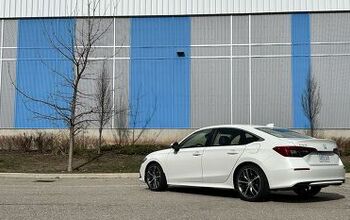
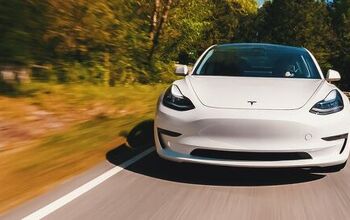

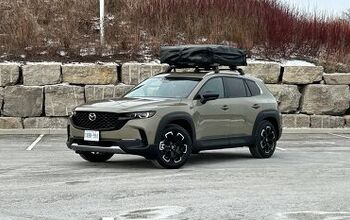
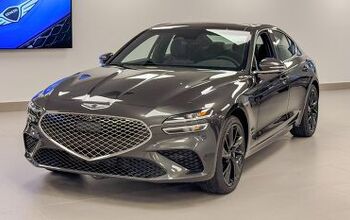

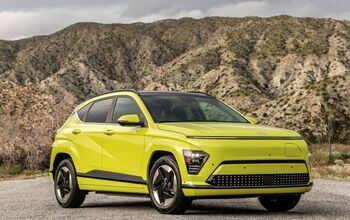

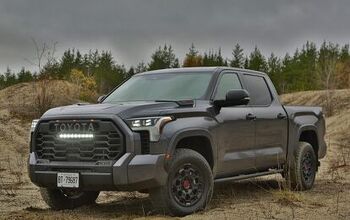

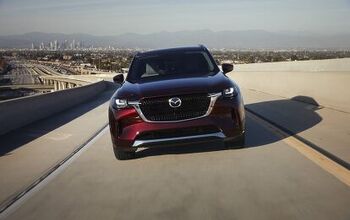
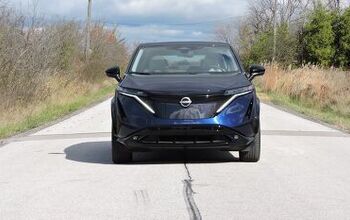
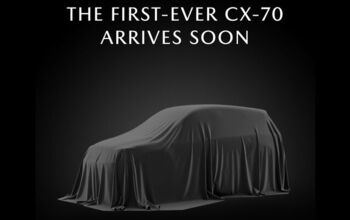

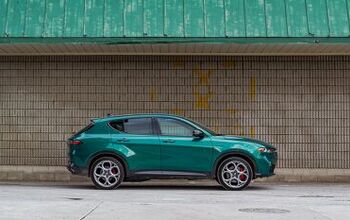
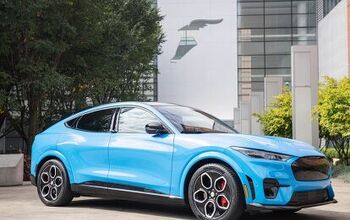
Comments
Join the conversation
interesting